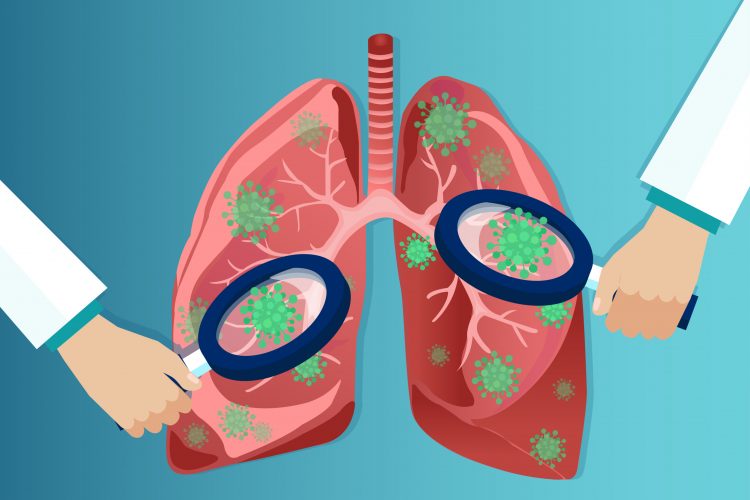Why do some patients develop COVID-19 pneumonia?
Posted: 28 September 2020 | Hannah Balfour (Drug Target Review) | No comments yet
Scientists reveal that some patients who develop severe COVID-19 symptoms mount ineffective immune responses due to a lack of type I interferons, either through genetic mutation or inactivation by auto-reactive antibodies.


The varied severity of COVID-19 symptoms in the population has puzzled and intrigued researchers since the start of the pandemic. Now, new findings could help explain why some people with COVID-19 develop severe disease and why more men than women die from COVID-19.
According to a paper published in Science, over 10 percent of the approximately 1,000 patients with life-threatening COVID-19 pneumonia they examined had auto-reactive antibodies that attack the immune system rather than the SARS-CoV-2 virus that causes the disease. Of these patients, 95 percent were men. Biochemical experts confirmed that these auto-reactive antibodies block the activity of type I interferon, a set of 17 proteins crucial for protecting cells and the body from viruses.
In around 660 patients with severe COVID-19, a significant number carried rare genetic variants in 13 genes critical for the body’s immune defence against the influenza virus. Also, 3.5 percent or more of people who developed COVID-19 pneumonia were completely missing a functioning gene and did not produce any detectable type I interferons in response to SARS-CoV-2 infection. These findings are detailed in a sperate study published in Science.
In either case, the absence of type I interferons appears to be a commonality among those who suffer from COVID-19 pneumonia.
The findings are the first published results from the COVID Human Genetic Effort, an international project spanning more than 50 genetic sequencing hubs and hundreds of hospitals. The effort is co-led by Dr Helen Su, a senior investigator at the US National Institute of Allergy and Infectious Diseases (NIAID) and Dr Jean-Laurent Casanova, head of the St. Giles Laboratory of Human Genetics of Infectious Diseases at The Rockefeller University in New York, US.
Related topics
Analysis, Antibodies, Disease research, Genomics, Immunology, Screening, Sequencing
Related conditions
Coronavirus, Covid-19
Related organisations
The Rockefeller University, US National Institute of Allergy and Infectious Diseases (NIAID)
Related people
Dr Helen Su, Dr Jean-Laurent Casanova


